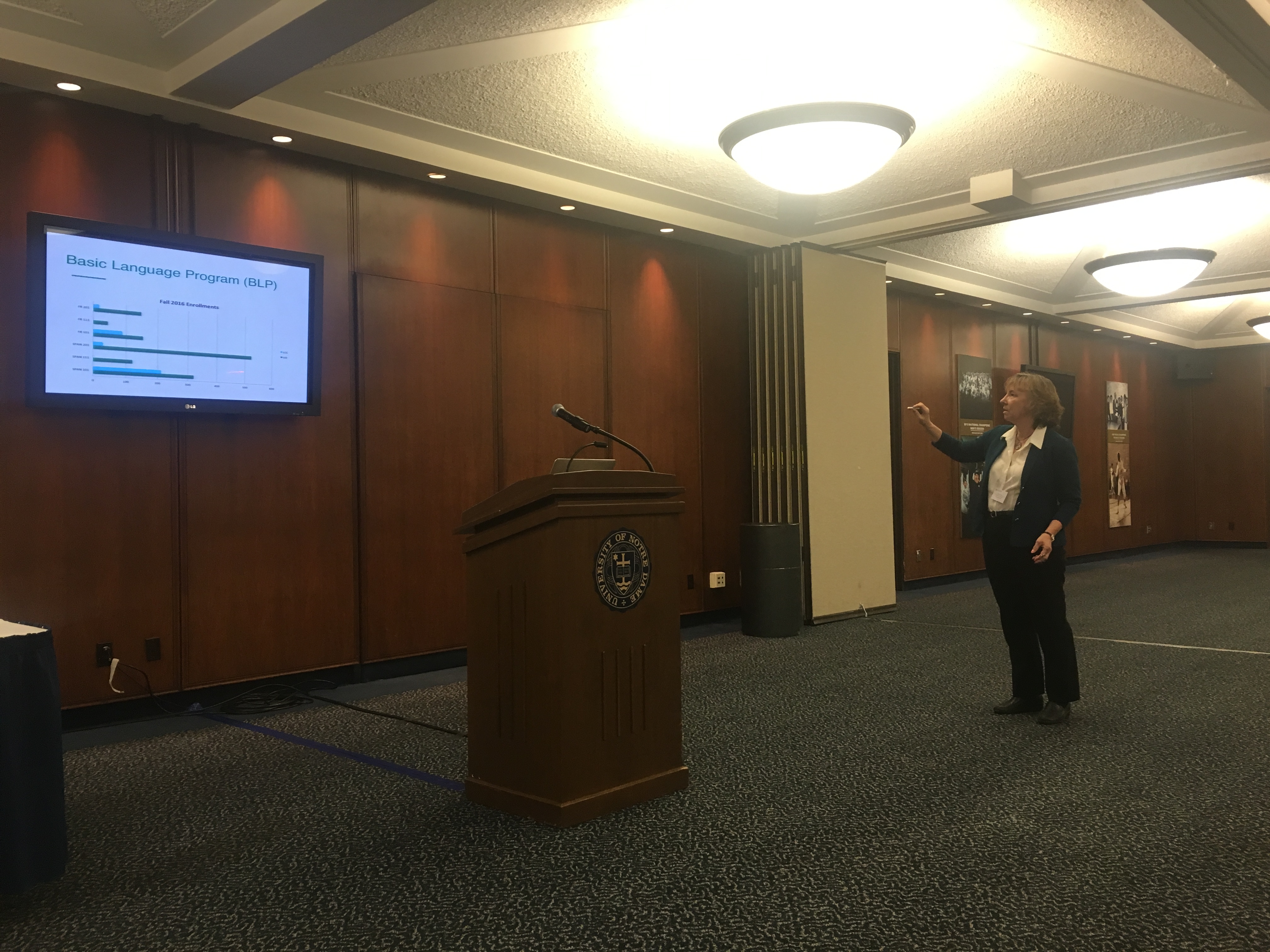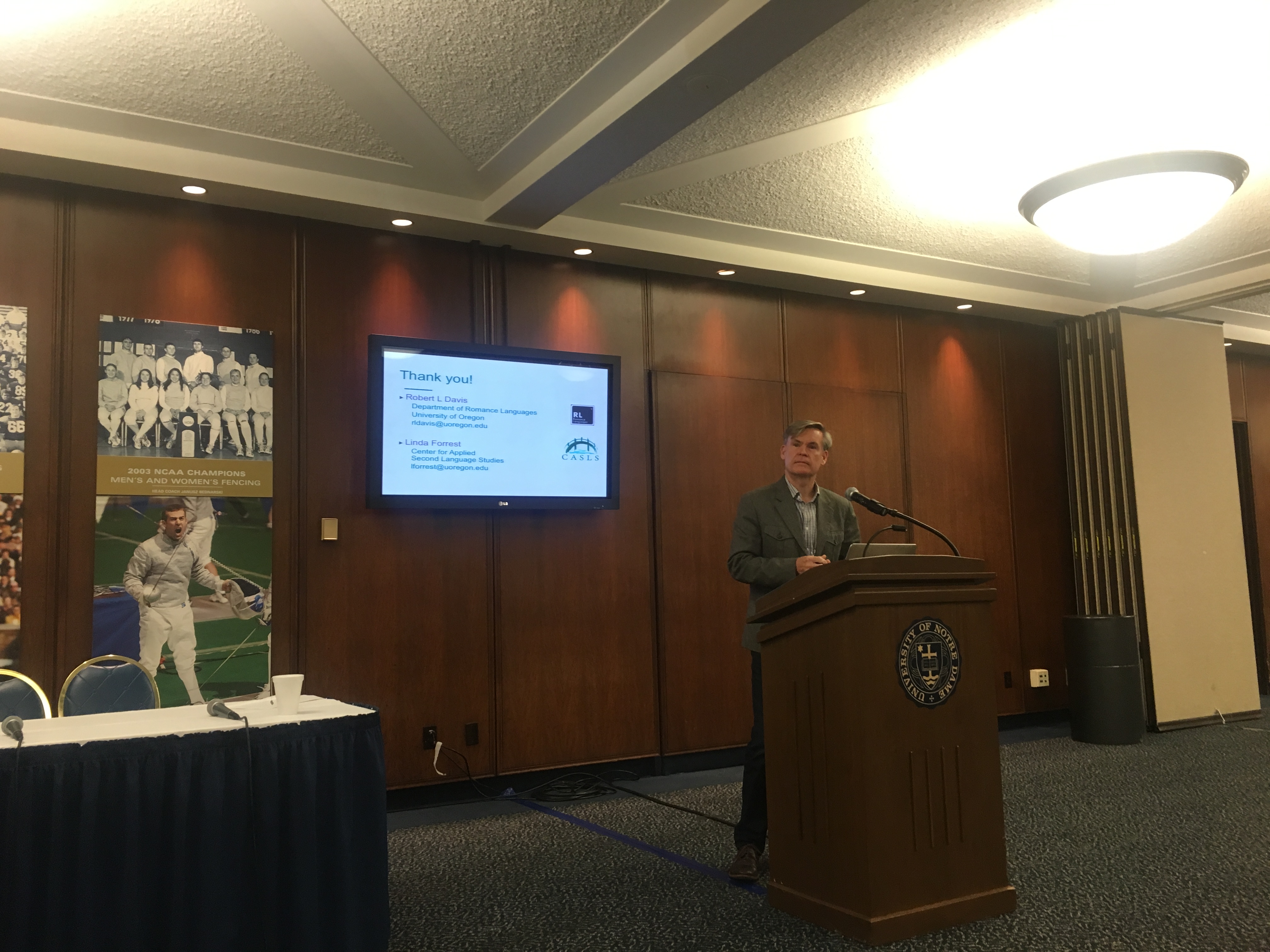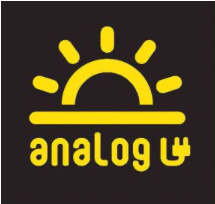Contents
Content Type: 1
Title: New Guides Aid School Staff Members in Registering Students with Non-English Names
Body:
To make it easier for school staff members to correctly register and record information for students whose home language is not English, REL Northwest and the Institute of Education Sciences have released “Getting It Right: Reference Guides for Registering Students with Non-English Names.” The guides help school staff members with accurately and consistently entering students’ names in school, district and state databases. They are available for students with home languages of Cantonese, Punjabi Muslim, Russian, Somali, Spanish, Tagalog, Ukrainian and Vietnamese.
The guides are available at http://educationnorthwest.us1.list-manage.com/track/click?u=4bf3815eea5b067e6135edeb8&id=a1bfb37e07&e=48693c2588
Here is a related article about the importance of correctly pronouncing students’ names: http://qz.com/775492/what-minority-students-hear-when-white-teachers-mispronounce-their-names/
Source: Education Northwest
Inputdate: 2016-09-18 21:50:40
Lastmodifieddate: 2016-09-19 03:36:47
Expdate:
Publishdate: 2016-09-19 02:15:01
Displaydate: 2016-09-19 00:00:00
Active: 1
Emailed: 1
Isarchived: 0
Content Type: 1
Title: After-School Shakespeare Club for Young English Learners
Body:
Matthew James Friday, a teacher at an international school, led his upper elementary English-language learners through a self-created reimagining of Shakespeare's Romeo and Juliet as part of an after-school Shakespeare drama club. Read how he did it in this blog post: http://www.edutopia.org/blog/after-school-shakespeare-club-matthew-friday
Source: Edutopia
Inputdate: 2016-09-18 21:51:34
Lastmodifieddate: 2016-09-19 03:36:47
Expdate:
Publishdate: 2016-09-19 02:15:01
Displaydate: 2016-09-19 00:00:00
Active: 1
Emailed: 1
Isarchived: 0
Content Type: 1
Title: Tea with BVP Episode: Communicative Language Teaching: Misunderstood and Misapplied
Body:
From http://www.teawithbvp.com/
Last week’s episode of Bill VanPatten’s podcast series focuses on communicative language teaching: what it is, essential components, examples and non-examples, and how contemporary approaches such as TPRS, task-based learning, and immersion related to a communicative approach. Listen to the podcast here: https://soundcloud.com/teawithbvp/episode-31-communicative
Source: Tea with BVP
Inputdate: 2016-09-18 21:54:04
Lastmodifieddate: 2016-09-19 03:36:47
Expdate:
Publishdate: 2016-09-19 02:15:01
Displaydate: 2016-09-19 00:00:00
Active: 1
Emailed: 1
Isarchived: 0
Content Type: 1
Title: Community Scavenger Hunts
Body:
Robert Sheppard has his ESOL students go on scavenger hunts, in which they take photos of a team member in front of the found item to document that they’ve found it. Here are some of his suggestions for things to search for:
Find as many USPS blue mailboxes as possible (1 point each)
Find a pharmacy (2 points); ask if they accept your insurance (3 bonus points!)
Find the oldest building in the city (5 points)
Find as many pizza restaurants with possessive nouns in the name as possible (2 points for each possessive noun)
Although intended for English learners, this activity could also be adapted to areas with a strong target language and culture influence, or in a study abroad context.
Read the full blog post here: http://blog.tesol.org/esol-community-scavenger-hunts/
Source: TESOL Blog
Inputdate: 2016-09-18 21:54:41
Lastmodifieddate: 2016-09-19 03:36:47
Expdate:
Publishdate: 2016-09-19 02:15:01
Displaydate: 2016-09-19 00:00:00
Active: 1
Emailed: 1
Isarchived: 0
Content Type: 1
Title: Activities to Progress Student Vocabulary and Proficiency
Body:
From http://www.throwawayyourtextbook.com
Here is a handy chart and blog post to explain it, with a progression of activities that move students from recognizing new vocabulary to producing it themselves: http://www.throwawayyourtextbook.com/blog/activities-to-progress-student-vocabulary-proficiency
Source: Throw Away Your Textbook!
Inputdate: 2016-09-18 21:55:37
Lastmodifieddate: 2016-09-19 03:36:47
Expdate:
Publishdate: 2016-09-19 02:15:01
Displaydate: 2016-09-19 00:00:00
Active: 1
Emailed: 1
Isarchived: 0
Content Type: 4
Title: Social Justice in Latin America and the United States: Cross-Curricular Learning
Body:
This week, we depart from our normal activity to include an overview of a cross-curricular project that involves the world language classroom. The activity featured below was developed by a team of teachers at Hillsboro High School in Nashville, Tennessee through the support of the Center for Latin American Studies at Vanderbilt University in collaboration with the Center for Applied Second Language Studies.
Project team: Shelly Wilkinson (Mathematics SL/HL and Algebra II), Paul Troy (History of the Americas SL/HL), Emarie Elliott (Spanish SL/HL), and Adrian Bahan (We the People)
Social Justice in Latin America and the United States: Cross-Curricular Learning
Setting the Scene: Understand Social Justice Issues in Latin America
Step 1: All learners involved in the project begin by experiencing an “Entry Event”. This event is a viewing of the film Favela Rising (http://www.favelarising.com/), a documentary that follows a former drug trafficker who unites his community against local drug-related violence. After viewing the movie, the learners will be treated to a speaker from Vanderbilt University that is an expert in social justice issues in Brazil.
Step 2: In mathematics courses (Mathematics SL and Mathematics HL), learners will engage in statistical analysis of the data from the Latin American Public Opinion Project (LAPOP) (http://www.vanderbilt.edu/lapop/) in order to identify social justice issues that merit more in-depth investigation. This investigation will be supplemented by gameplay of Parable of the Polygons (http://ncase.me/polygons/), a blog/game featured on CASLS’s Games2Teach blog (https://games2teach.uoregon.edu/learn/whats-new/).
Concurrent Learning Practices Across Disciplines
After completing Steps 1 and 2, learners will work on the following activities in their courses concurrently.
History of the Americas: Learners will explore civil rights issues throughout the Americas, paying special attention to analysis of primary and secondary sources. This exploration will lead learners to consider how historic trends with Civil Rights Issues in the Americas are connected to the modern world.
Spanish: Learners will use target-language sources to engage in simple analysis of the LAPOP data. They will read NCASE publications in Spanish to further explore the social justice issues that they have selected and will use the information that they find to craft texts (speeches, letters, and brochures) to inspire change regarding the issues at hand.
We the People: Learners will create a survey that is similar to the LAPOP survey to give to learners at Hillsboro High School.
Algebra II: Learners will advise the creation of the aforementioned survey and will engage in preliminary analysis of the data that the learners collect.
Final Presentations
In order to tie all of the courses together, learners will form teams according to social justice issue chosen and will work to create an artifact that raises community awareness (learners may create a social media campaign, write a song, or engage in any number of activities). They will then present their creations at a public event held at Vanderbilt University.
Notes: While most learners involved in the project are in at least three of the classes listed above, not all of them are. Given this reality, the activities crafted in each class were designed to create meaningful connections among subject areas but are not overly dependent on one another.
Source: CASLS Activity of the Week
Inputdate: 2016-09-20 08:18:19
Lastmodifieddate: 2016-09-26 03:34:14
Expdate:
Publishdate: 2016-09-26 02:15:01
Displaydate: 2016-09-26 00:00:00
Active: 1
Emailed: 1
Isarchived: 0
Content Type: 5
Title: CUALHE 2016 Annual Meeting and Conference
Body:
 The Consortium of Useful Assessment in Language and Humanities Education (CUALHE) annual meeting and conference was held on Oct 7-8. 2016. CUALHE is a collaborative effort to share and enhance assessment practices, fostering a culture of reflective teaching. The goals of the annual meeting as stated on the website were as follows: (a) to provide a forum for those working on outcomes assessment (and related endeavors) to present and exchange ideas, and (b) to enable strategic planning of the Consortium organization and activities.
The Consortium of Useful Assessment in Language and Humanities Education (CUALHE) annual meeting and conference was held on Oct 7-8. 2016. CUALHE is a collaborative effort to share and enhance assessment practices, fostering a culture of reflective teaching. The goals of the annual meeting as stated on the website were as follows: (a) to provide a forum for those working on outcomes assessment (and related endeavors) to present and exchange ideas, and (b) to enable strategic planning of the Consortium organization and activities.
 CASLS Director Dr. Julie Sykes presented as the keynote speaker on Proficiency and Pragmatics: Expanding Our Repertoire of Language Assessment, which focused on empirically based framework for assessing the pragmatic abilities of language learners as related to language proficiency through exploration of four dimensions critical to L2 pragmatic analysis and instruction – (1) knowledge, (2) analysis, (3) subjectivity, and (4) awareness. CASLS Research Director Dr. Linda Forrest and CASLS advisory board member and Professor of Spanish at the University of Oregon Dr. Robert Davis presented on Improving the Student Experience through Program-wide Assessment and Articulation.
CASLS Director Dr. Julie Sykes presented as the keynote speaker on Proficiency and Pragmatics: Expanding Our Repertoire of Language Assessment, which focused on empirically based framework for assessing the pragmatic abilities of language learners as related to language proficiency through exploration of four dimensions critical to L2 pragmatic analysis and instruction – (1) knowledge, (2) analysis, (3) subjectivity, and (4) awareness. CASLS Research Director Dr. Linda Forrest and CASLS advisory board member and Professor of Spanish at the University of Oregon Dr. Robert Davis presented on Improving the Student Experience through Program-wide Assessment and Articulation.
Source: CASLS Spotlight
Inputdate: 2016-09-20 12:58:35
Lastmodifieddate: 2016-10-17 03:36:25
Expdate:
Publishdate: 2016-10-17 02:15:01
Displaydate: 2016-10-17 00:00:00
Active: 1
Emailed: 1
Isarchived: 0
Content Type: 5
Title: The Next EcoPod: Quake Response
Body:
Last year, CASLS designed and piloted Ecopod: Survival, the first iteration of place-based, augmented reality games for language learning. The inspiration for this game was the Common Reading for the 2015-2016 academic year at the University of Oregon, Station 11 by Emily St. John Mandel, where a flu epidemic has wiped out a significant portion of humanity and the remnants struggle to hold on to their culture and their identity. Students at the University of Oregon in the “Living the Language” residential immersion program used the game as part of their coursework, engaging in modules that required them to use both language and content expertise to solve problems, find collaborators, and build community.
Now, CASLS is on to the next phase with the creation of Ecopod: Quake Response, a game which continues to play off the theme of disaster scenarios. In this version of the ARIS place-based, augmented reality game, a magnitude 9.0 earthquake devastates the city of Eugene and the University of Oregon campus. Students are enlisted by the emergency response team on campus to help identify useful social media posts, specifically from Twitter and Instagram, in order to find areas in need of assistance. Several posts will appear on the game map for the student to look over, but it is ultimately up to them to determine which posts are worth keeping and which ones to throw away. Once the student has gathered enough information, they will try to determine the kinds of emergencies that are occurring across campus, such as the location of a fire or where reported thefts are taking place.
Ben Pearson, CASLS Digital Technologies Associate and lead developer on the Ecopod games, recently commented on how this game is being implemented: “The thing that really excites me about this game in particular are the cross-curricular opportunities that it enables. We are working with Christopher Bone from the Geography department to use this game for his own classroom purposes. His notions on how to utilize ‘Big Data’ to create a digital map in order to find useful clusters of information really line up with many of the ideas we have about integrating place with language. We have already used Ecopod: Quake Response in an ESL context with very interesting results, and we are excited to see how it is used from a Geography perspective.”
For more information about Ecopod and other place-based games used for language learning, click here to visit the Games 2 Teach website, or here to visit Pebll, to see if there are other place-based experiences near you! We would love to hear your input on your experience with using Games 2 Teach. Write to us at info@uoregon.edu, follow us on https://twitter.com/CASLS_nflrc, or like us on Facebook http://www.facebook.com/casls.nflrc.
Photo from Oregon Summer Program (OSP) students doing activities with EcoPod: Quake Response.
Source: CASLS Spotlight
Inputdate: 2016-09-20 13:35:36
Lastmodifieddate: 2016-10-31 03:38:38
Expdate:
Publishdate: 2016-10-31 02:15:01
Displaydate: 2016-10-31 00:00:00
Active: 1
Emailed: 1
Isarchived: 0
Content Type: 3
Title: Is Your SLO Suffering from An Identity Crisis?
Body:
Kathy Shelton is a World Language Education Program Specialist for the Ohio Department of Education. She has 25 years of experience teaching French in traditional and online programs.
The SLO (Student Learning Objective) is suffering from an identity crisis. An SLO gets lots of attention early in the school year when teachers pre-assess students in order to set growth targets for student learning. The SLO also gets lots of attention late in the school year when teachers post-assess to see if their students met their growth target. But in between, the SLO starts to feel like a neglected child trying to figure out who it really is and why no one is paying any attention to it.
Why this SLO identity crisis? What are we missing as far as its true purpose? We all know the SLO’s role in determining educator effectiveness and impact on student learning, but what is the educator’s role in determining the SLO’s impact on student learning? Educators spend several days pre-assessing students, gathering and inputting demographics and data, and setting learning goals for students with this tool. So why is this valuable information often ignored as soon as the SLO is submitted? How can administrators and teachers use the SLO to plan curriculum and assessments that will maximize student learning?
The SLO pre-assessment information, along with demographic data gathered via the SLO, provides crucial guidance in designing content that addresses students’ needs because it identifies areas of strength and weakness for individual students, as well as their year-long learning goals. For world language teachers, one of the most effective ways to gather SLO data is by using an open-ended performance assessment or IPA as the pre-assessment. By scoring the pre-assessment with proficiency rubrics, teachers receive concrete evidence for each student’s language proficiency in terms of interpretive, interpersonal and presentational skills, cultural competence, and what the student needs to do to advance to the next level.
For example, based on data in the SLO, the teacher may find that a large subgroup of her students struggle in reading skills and deeper comprehension of authentic texts. The teacher decides to use the ACTFL Appendix D template to scaffold readings, based on each student’s proficiency level. The sub-group of students initially focuses on literal comprehension skills such as key word recognition, main idea and supporting details. As these skills improve, students begin to focus on higher level comprehension skills such as making inferences and comparing cultural perspectives. The students who already have strong reading skills will be challenged to focus on both the literal and the higher level reading skills throughout the entire course. The teacher will consistently use formative and summative assessments to monitor each student’s progress in comprehending authentic texts, ensuring students are on track to meet their learning goals for the year, as targeted in the SLO.
The true purpose of an SLO has arguably been overshadowed by its role in evaluating educator effectiveness. Perhaps the time has finally come to resolve the identity crisis of the SLO.
Visit the Ohio Department of Education’s World Languages Model Curriculum and SLO Guidance pages for more resources related to this topic.
Source: CASLS Activity of the Week
Inputdate: 2016-09-20 15:55:56
Lastmodifieddate: 2016-10-24 03:37:40
Expdate:
Publishdate: 2016-10-24 02:15:01
Displaydate: 2016-10-24 00:00:00
Active: 1
Emailed: 1
Isarchived: 0
Content Type: 5
Title: Analog U: Self-assessment and Reflection
Body:
With the slogan, “Disconnect to Reconnect,” what started as a one day “holiday” from devices and social media is now also an app, developed by CASLS’ Educational Software Developer Carl Burnstein. Analog U is a co-curricular initiative of the Division of Undergraduate Studies at the University of Oregon with the goal of facilitating awareness around meaningful use of technology. The application is designed to help people assess their technology use and reflect on that usage (or non-usage) through exercises and activities built around reinforcing mindful use of technology.

There are four main exercises on the app so far, Take Time to Do Nothing, Use One Digital Device at a Time, Do Something Analog Style, and Make a Resolution to Not Text or Do Social Media While Driving. All four exercises employ timers that the person sets, followed by a reflection section where they can reflect on how things went. For example, with Take Time to Do Nothing, research shows that doing a little bit of nothing helps your brain process information. The person can choose a certain amount of time to set aside for doing nothing. Once they set the timer they put their device away and do nothing, and when the timer is up it will alert the person. They are then prompted to assess how doing nothing went for them and reflect on the process and outcome. The other three exercises follow the same pattern. In addition, there are some guided meditations included to help with overall mindfulness training.
Analog U Day happens every Earth Day, and the app is currently in development and is set to be released at the beginning of UO's winter quarter (January 9, 2017) for both Android and iOS devices. “I like the concept of learning how to use your tech purposefully and not let it control you,” says Carl Burnstein about the project. The idea of self-assessment and reflection carries over into all aspects of life, personal and academic; for example, asking language students to assess and reflect on their language use (or non-use) in a similar manner as Analog U. LingaFolio, including LingaFolio Online, employs this strategy as students progress in their language proficiency.
Source: CASLS Spotlight
Inputdate: 2016-09-21 12:08:52
Lastmodifieddate: 2016-10-03 03:36:56
Expdate:
Publishdate: 2016-10-03 02:15:02
Displaydate: 2016-10-03 00:00:00
Active: 1
Emailed: 1
Isarchived: 0
